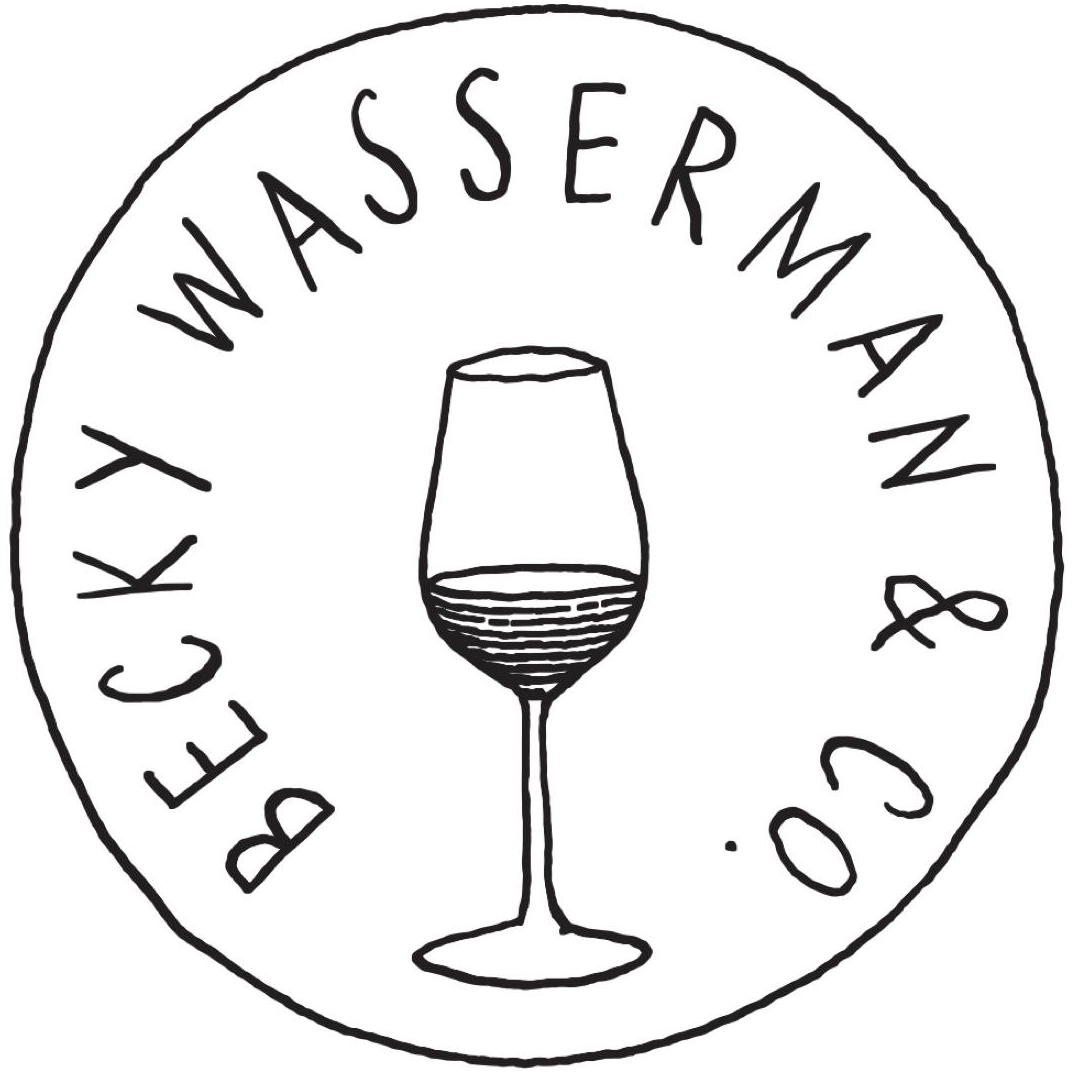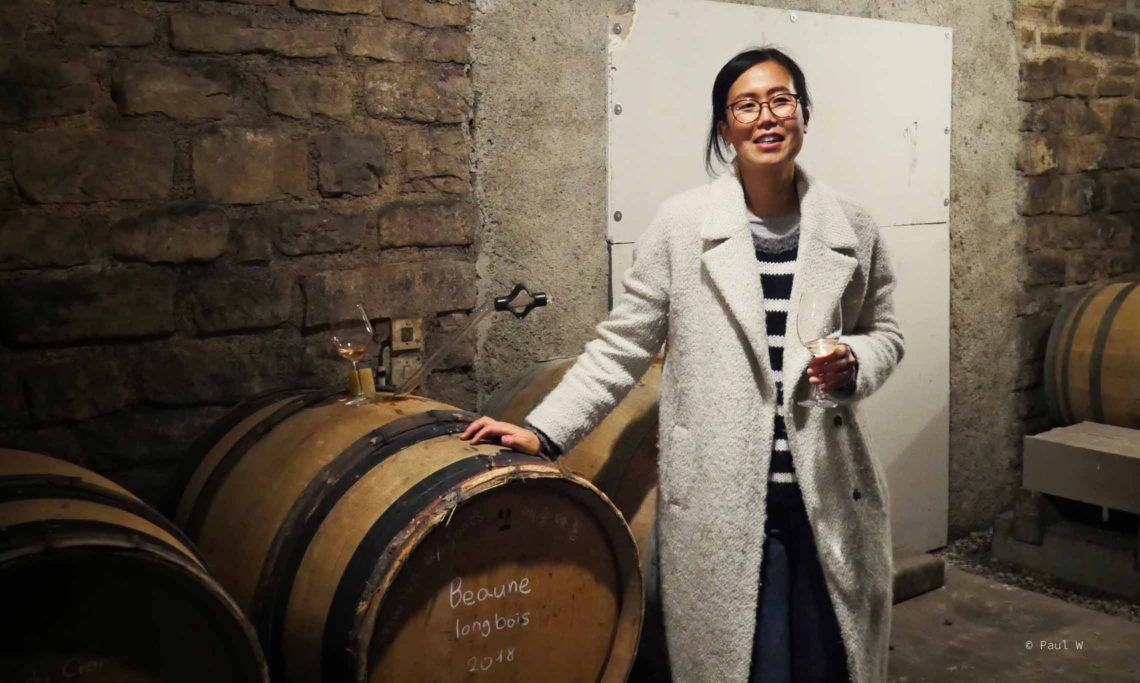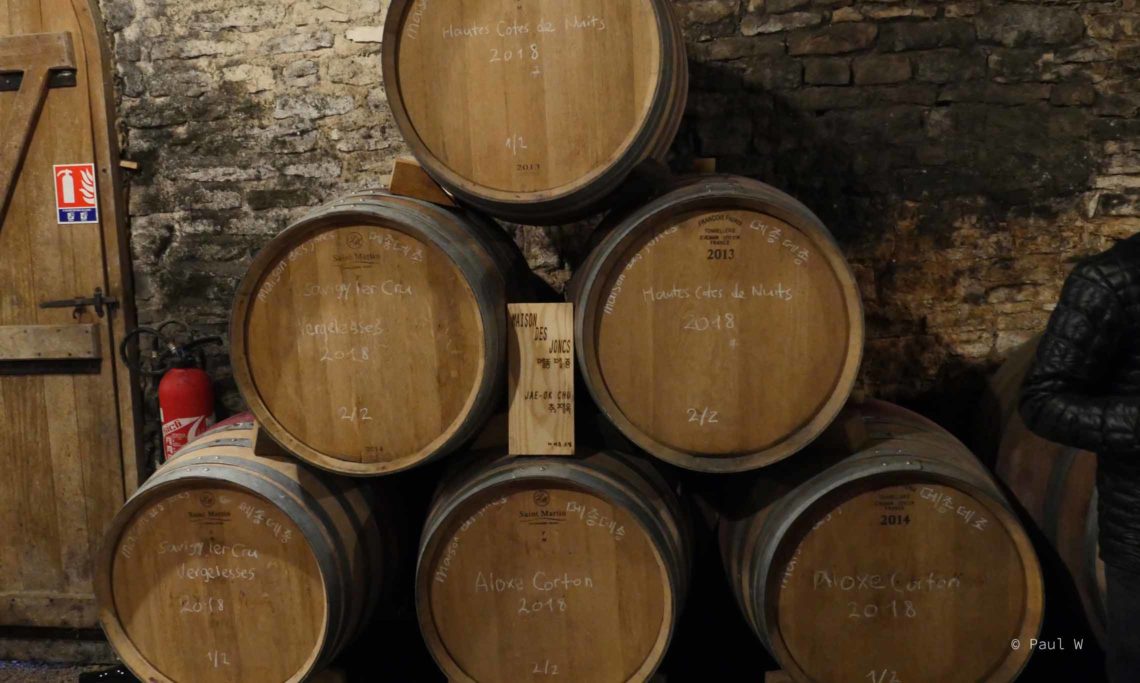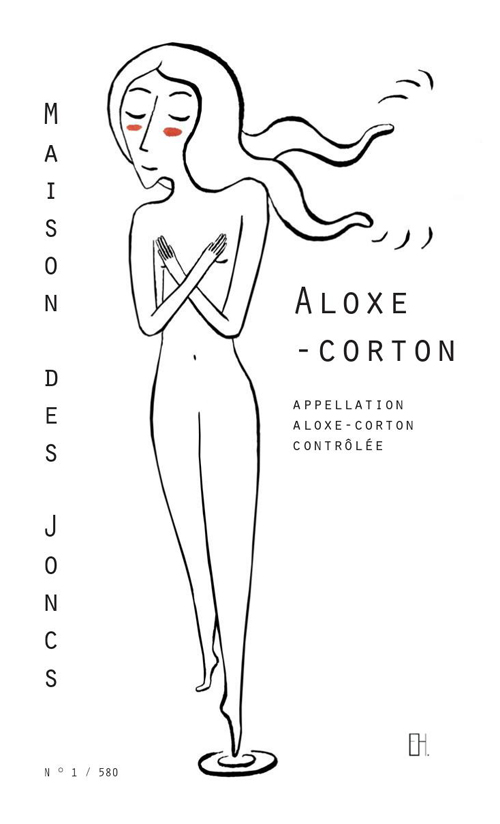Domaine Profile
- Location: Beaune, Côte de Beaune, Burgundy
- Variety: Pinot Noir
- Viticulture: Domaine: sustainable with organic methods. Negociant: organic (certified).
- Vinification: 40-60% whole-cluster, ambient yeast fermentation, used barrels, minimal SO2, filtered only when necessary.
Jae Chu was born in 1980 in Seoul, Korea. Her father owned a garage. Her mother owned a traditional Korean restaurant, un routier, Jae says, referring to France’s nationwide network of restaurants that caters famously well to truckers.
South Korea’s education system ranks as one of the best amongst OECD member countries. Jae remembers school as strict and intense. She studied English literature in college. Having no specific career plan, she took a job as a croupier in a casino on Jeju island, Korea’s “Little Hawaii.” She enjoyed the work, especially at the blackjack table, but not the erratic hours. She returned to Seoul, went to bartending school, and bartended for a year.
Jae saw an ad for a paid internship in sales and marketing in Buena Vista, California. She applied, was accepted, flew to Los Angeles, and reported for work at Knott’s Berry Farm. It wasn’t exactly sales and marketing, but she loved California and was sad to leave a year later when her visa expired.
Jae was first introduced to wine as a bartender. It had grown on her even more in California (“Even though I mostly drank things like Woodbridge.”) Back in Seoul, she took a job as a sales representative with Shindong Wine, South Korea’s top importer of fine wine. They represented the great classics: Guigal, Gaja, DRC, and many of the famous Bordeaux Châteaux. At the time, the fine wine market in South Korea was still in its infancy. Shindong struggled to sell some of its highly allocated wines, so the owner drank many of the wines himself and shared them with his sales team. It was excellent training.
The revelatory bottle happened at a dinner organized in honor of François Faiveley. “Faiveley’s 1998 Musigny was la grosse claque, a punch to her gut,” Jae says. “It was different from everything I had tasted until then. There was not a trace of extravagance. It was so elegant —even more so than Pétrus. It had everything I admired. I had mostly been exposed to Bordeaux, but after the Musigny, all I wanted to drink was Burgundy.”
After five years with Shindong, Jae needed a change. At first, she considered going to England to study for the WSET, but for her love of Pinot Noir, she enrolled instead at the University of Burgundy in Dijon to study French. Her plan was to conquer the language, then to stay in Burgundy to earn a master’s in the wine and spirits business.
On February 2, 2008, Jae stepped out of the train in Dijon. It was cold, wet, and grey; she did not speak a word of French; there was not a vine to be seen. She spent the following months burrowing day and night into the study of French. This was not the postcard of Burgundy she had anticipated. But in the fall, Jae harvested at Méo-Camuzet and her plans to study the business of wine went out the window. “I had gotten my hands dirty,” she says, “Now, I wanted to learn about production.”
The “BTS viti oeno” at the Lycée Viticole in Beaune is a two-year work-study course in viticulture and enology. The work part consists of an apprenticeship at a winery which students must secure before they can enroll in the course.
Jae emailed her resume and a letter of motivation to dozens of domaines. She received no responses. By the summer of 2009, admissions to the Lycée Viticole were about to close and she had yet to secure an apprenticeship. “So I went to all the villages near Beaune and knocked on the doors of domaines.” Sadly, her efforts did not pay off. “I cried a lot,” she admits.
In the nick of time, Michel Mallard, the régisseur of Domaine d’Eugénie in Vosne-Romanée, answered the email Jae had sent him months before. After an interview, he offered her the indispensable internship. She completed the two-year course in Beaune, graduating in 2011. On a personal note, she met Arnaud, her future husband.
Domaine d’Eugénie belongs to Artémis, François Pinault’s holding company. Artémis is the controlling shareholder of the luxury-goods conglomerate Kering (Gucci, Yves Saint Laurent, Balenciaga, etc.) Artémis is also heavily invested in wine: apart from Eugénie, they own Château Latour in Pauillac, Château-Grillet in Condrieu, Eisele Vineyard in Napa, and have recently acquired Clos de Tart in Morey-Saint-Denis. The purchase is rumored to have made Clos de Tart the most expensive vineyard in the world.
Upon graduation, Jae was offered the position of second-in-charge of viticulture at Château Latour in Bordeaux. But she did not want to leave Burgundy and opted instead to further her studies there. She obtained her master’s degree in viticulture and enology in 2012, and her National Diploma of Enology in 2014.
Jae soon found out that there was no work for her as an enologist in Burgundy. Mind you, this had less to do with her gender or nationality than the size of Burgundy’s domaines, which are small and family-owned; winemaking duties are usually taken over by one of the owners’ children. So Jae returned to Domaine d’Eugénie to work in the vineyards as a seasonal worker. Fortunately, one of the full-time technical staff at Eugénie left, and Jae stepped into his position.
“Belonging to the small technical team at Eugénie was wonderful,” she says. “Apart from Michel Mallard, there was no hierarchy. The work was shared equally, everyone participating in all that needed to be done in the vineyards and winery. Furthermore, Michel was very inclusive: the tanks were tasted by the team every day during the winemaking process and he encouraged discussion.”
By 2016, Jae had given birth to her second child and felt ready to give birth to wine of her own.
In 2017, she purchased just enough grapes to make two barrels each of two wines, a Hautes-Côtes de Nuits and an Aloxe-Corton. She made the wines at the Château de Bligny-les-Beaune, Dominique Lafon and Pierre Murgey’s custom crush facility.
We heard about Jae from another Korean woman, Young Seon Choi, Romain Guiberteau’s agent for South Korea. “I want to introduce you to a Korean woman who is DNO and is working at Domaine d’Eugénie,” she wrote. “She made her wine for the first time. Only 4 barriques. If you have time, I hope that you can meet her and taste her 2 wines. I found them beautiful.”
4 barriques! Roll eyes.
Minutes after meeting Jae and a few words into her beliefs (which is not the same as methods), we knew we wanted to work with her. Of course, the thief must still go into the barrel. At a new domaine or micro-négoce, it is a trepidatious moment: this is their life’s work; you could hate it. But Jae’s wines were stunning… and a total surprise, given her day job at a classically-minded domaine.
Several of the friends Jae made in Burgundy were Japanese. The wines they drank together were mostly natural. When we prodded Jae to tell us about her first inspirational natural wine she was reluctant to admit, because it was so predictable, that it was from Pierre Overnoy. Then came Ganevat, Labet, etc. Jura is so often the gateway drug to natural wine.
Jae’s wines were delicately extracted. They had seen no sulfur yet and were reduced. Oh, but the texture and fruit! So pure and captivating; so lush yet buoyant. They lived in a space between the carefreeness of natural wine and a more vertical attachment to terroir, a space circled by winemakers we love dearly: Chanterêves, Nicolas Faure, and La Calmette. It was an exhilarating tasting. Despite the tiny quantities we would have to sell we were looking forward to a long relationship with Jae.
Then, she dropped a bomb on us.
A few weeks ago, it was announced that Jacques Devauges, the régisseur at Clos de Tart, was leaving for Clos des Lambrays. To replace him, Artemis brought in Alessandro Noli, the régisseur at Château-Grillet. This left the position of régisseur at Château-Grillet to be filled. It was offered to Jae.
The decision was torturous. She sent us an email: “We need to talk.” After she told us that she had accepted the position, Jay asked if we were surprised. We were not. There are just three possible outcomes to We need to talk. The most common is I am leaving.
Château-Grillet is a legendary terroir. For a young female Korean enologist to have a hand in its destiny is extraordinary. We have no doubt that Jae will rise to the occasion.
Unfortunately, her move to the Rhône precludes her from continuing her micro-négoce in Burgundy. Maison des Joncs is therefore a glorious two-vintage pop-up (2017-2018). We encourage you to get your hands on one of the very few bottles that will make it to the US.
And who knows? Maison des Joncs may very well pop up again in a few years —perhaps with Syrah?
Wines
-
White
-
Red



